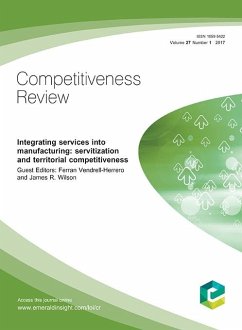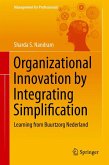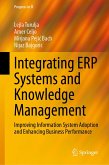There is currently around 10% annual growth of the industrial US rental industry. This growth is attracting experienced investors, and rental fleets/inventories are growing exponentially. Why are we observing this preference in the use over the ownership of equipment, vehicles or machinery? This question is reflective of the broader inspiration for a growing literature analysing the value of including service business models in manufacturing firms. Manufacturing and services have been traditionally conceptualized as largely independent economic activities, but evidence seems to suggest that there are potential synergies between manufacturing and services to enhance both firm-level competitiveness and consumer satisfaction, a business strategy known as servitization. What is more, such strategies fit well with the argument that manufacturing business models exclusively focused on exploiting economies of scale have become unsustainable at the turn of the century with the rapid rise of Asia's engagement in the global economy. Advanced economies - such as Europe and the US - are characterised by high wages, high skills, high disposable income and developed welfare systems. These conditions require a better understanding of what drivers and bottlenecks can enable Western manufacturing sectors to transit to more innovation-intensive and difficult-to-imitate business models based on services that will sustain their competitiveness in the medium and long term. This realisation is driving much practice around regional competitiveness policy, which is increasingly focused on supporting interaction between different agents as a route to more sophisticated and wider-reaching innovation. Indeed, place-based concepts such as regional innovation systems, clusters and smart specialisation strategies have become popular in part due to recognition that interactions between agents with different types of knowledge are capable of generating strong innovation outcomes. In this sense there are interesting questions around the specific requirements at territorial level for fostering the development of servitization strategies, which are likely to require a mixture of knowledge that exist outside any one firm. This is particularly the case in regions that are strongly reliant on traditional manufacturing activities, and where policy may have an important role to play in encouraging linkages that support the transition to service-based economic models.It is with these challenges in mind that this issue of The Competitiveness Review looks at the phenomenon of service implementation and competitiveness and posits a research agenda that needs to be explored at territorial level. The issue brings together papers from across the spectrum of current servitization debates, as a stimulus to think about the link with territorial competitiveness and related public policy.
Dieser Download kann aus rechtlichen Gründen nur mit Rechnungsadresse in A, B, BG, CY, CZ, D, DK, EW, E, FIN, F, GR, HR, H, IRL, I, LT, L, LR, M, NL, PL, P, R, S, SLO, SK ausgeliefert werden.









